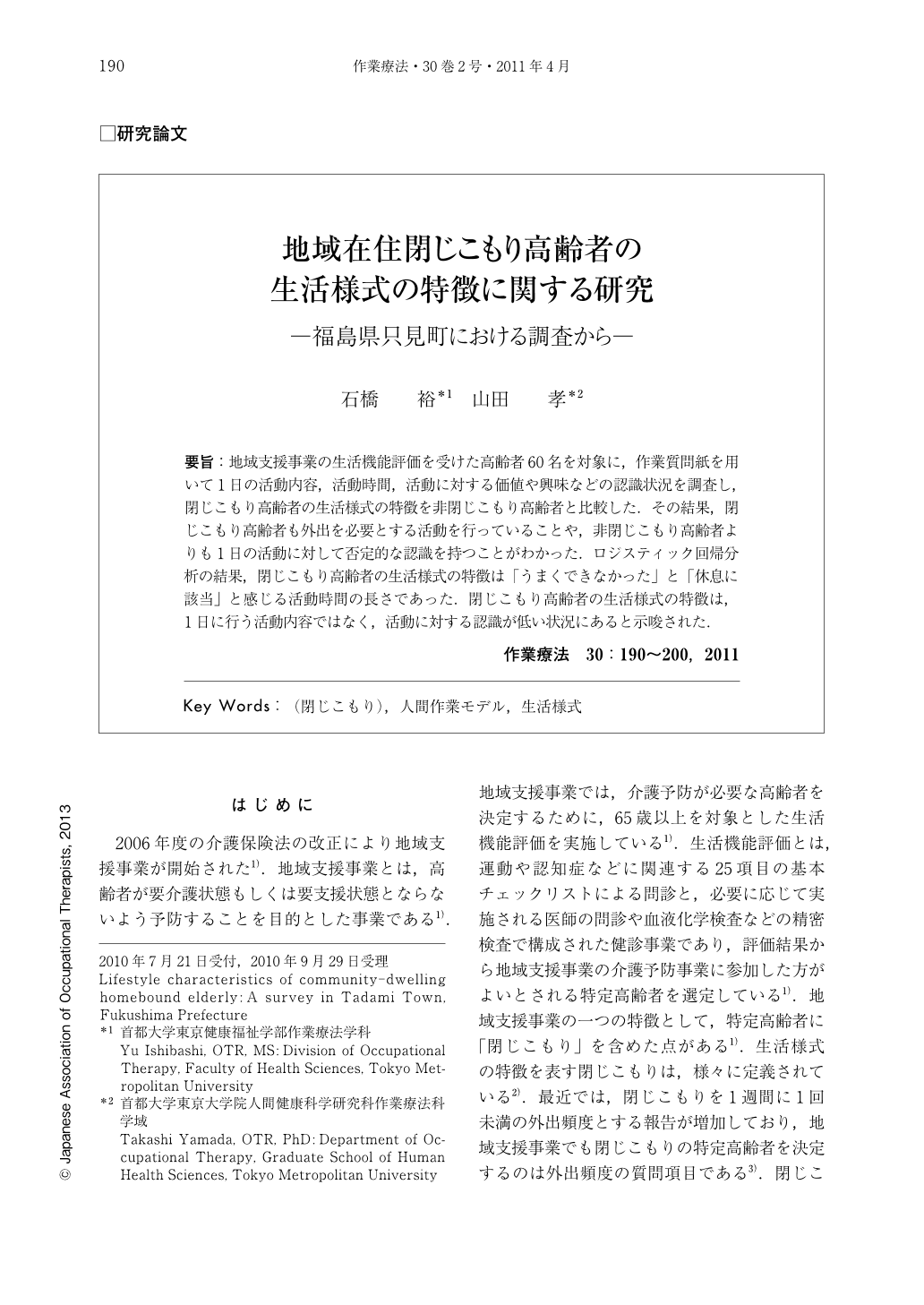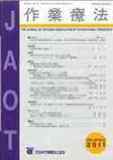Japanese
English
- 販売していません
- Abstract 文献概要
- 1ページ目 Look Inside
- 参考文献 Reference
- サイト内被引用 Cited by
要旨:地域支援事業の生活機能評価を受けた高齢者60名を対象に,作業質問紙を用いて1日の活動内容,活動時間,活動に対する価値や興味などの認識状況を調査し,閉じこもり高齢者の生活様式の特徴を非閉じこもり高齢者と比較した.その結果,閉じこもり高齢者も外出を必要とする活動を行っていることや,非閉じこもり高齢者よりも1日の活動に対して否定的な認識を持つことがわかった.ロジスティック回帰分析の結果,閉じこもり高齢者の生活様式の特徴は「うまくできなかった」と「休息に該当」と感じる活動時間の長さであった.閉じこもり高齢者の生活様式の特徴は,1日に行う活動内容ではなく,活動に対する認識が低い状況にあると示唆された.
The purpose of this study was to clarify the lifestyle characteristics among homebound elderly through comparing them to non-homebound elderly. A survey was conducted through personal interviews in the home in Tadami, Fukushima prefecture. Participants were 60 homebound and non- homebound elderly classified by the National Assessment of Living Functions. Data regarding age, sex, whether living together with their family members or not, daily lifestyle and occupations were gathered using the Occupational Questionnaire.
The following two findings were obtained: 1) the homebound and non-homebound group went out equally, and 2) the homebound group had more negative reactions to going out, but felt more emotionally restored after going out than the non-homebound group. The results indicate that the lifestyle characteristics among homebound elderly influence both the amount of time they spend outside the home, and their emotional reaction to an active lifestyle.

Copyright © 2011, Japanese Association of Occupational Therapists. All rights reserved.


